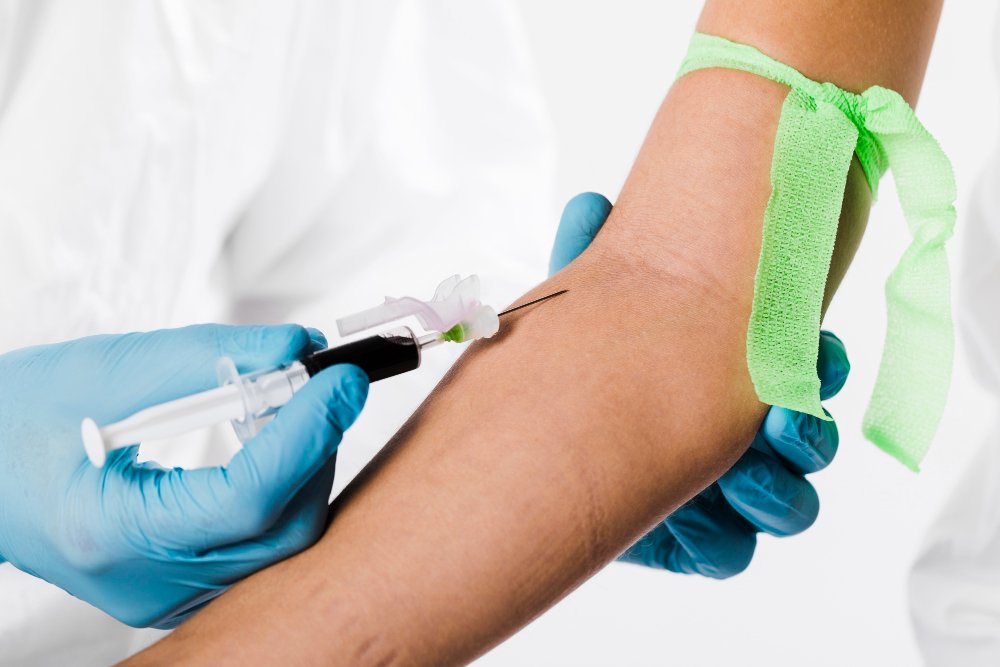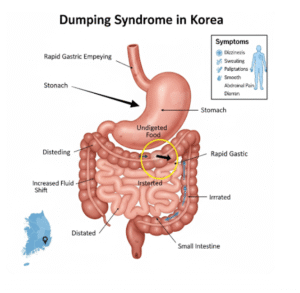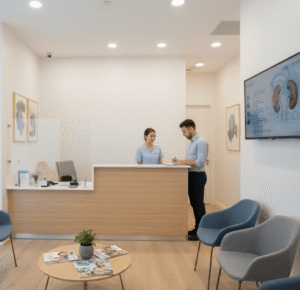Overview
An arteriovenous fistula (AVF) is an abnormal connection between an artery and a vein. Normally, blood flows from arteries to capillaries and then to veins. In an AVF, blood bypasses the capillaries and flows directly from an artery into a vein, which can lead to complications such as poor oxygen delivery to tissues, vein enlargement, and heart problems. AVFs can be congenital, acquired through injury or surgery, or created surgically for dialysis access in patients with kidney failure.
What is Arteriovenous Fistula?
An arteriovenous fistula is a direct connection between an artery and a vein, bypassing the capillary system. This abnormality can occur anywhere in the body but is commonly found in the legs, arms, lungs, brain, or gastrointestinal system. In patients with end-stage renal disease, a surgically created AVF in the arm is a preferred access site for hemodialysis due to its durability and low complication rate.
Symptoms
Small or internal AVFs may not produce noticeable symptoms. Larger or problematic AVFs can cause:
- Swelling or visible pulsating veins
- Fatigue
- Pain or cramping in the affected area
- Red or warm skin over the fistula
- Shortness of breath (if large AVF affects heart or lungs)
- Heart murmur or abnormal heartbeat
- Neurological symptoms (if in the brain)
- Gastrointestinal bleeding (if in the GI tract)
Causes
- Congenital (present at birth): Some AVFs develop during fetal development.
- Trauma: Penetrating injuries or blunt trauma to arteries and veins.
- Medical procedures: Surgical creation for dialysis or unintended complications from catheter placement or biopsies.
- Aneurysms or vascular malformations: May rupture and form AVFs.
- Certain diseases: Conditions like hereditary hemorrhagic telangiectasia (HHT) can lead to AVFs.
Risk Factors
- Traumatic injury (especially penetrating wounds)
- Vascular procedures (angiography, dialysis catheter placement)
- Genetic vascular disorders
- Chronic kidney disease (for surgically created AVF)
- High blood pressure
- Aneurysm formation
Complications
- Heart failure due to increased blood volume returning to the heart
- Blood clots (thrombosis)
- Aneurysm formation in connected vessels
- Limb swelling or ischemia (restricted blood supply)
- Infection (especially in dialysis AVFs)
- Stroke or brain hemorrhage (if AVF is in the brain)
- Gastrointestinal bleeding (if AVF is in GI tract)
Prevention
- Avoid trauma and punctures to major arteries and veins
- Proper technique and monitoring during invasive medical procedures
- Genetic counseling for inherited vascular disorders
- Regular monitoring of dialysis AVFs to detect complications early
- Blood pressure management to reduce vascular stress
Treatment Options in Korea
South Korea offers advanced diagnostics and specialized treatment for both congenital and acquired arteriovenous fistulas, with expertise in minimally invasive and surgical options.
1. Diagnosis
- Doppler Ultrasound: Detects abnormal blood flow patterns
- CT or MR Angiography: Visualizes the location and size of the AVF
- Cardiac echocardiography: Evaluates heart function if AVF affects circulation
- Endoscopy: For AVFs in the GI tract
- Cerebral angiogram: For AVFs in the brain
2. Conservative Monitoring
- Small and asymptomatic AVFs may be monitored regularly
- Follow-up imaging and heart function tests are essential
3. Minimally Invasive Procedures
- Endovascular embolization: Involves inserting coils, glue, or plugs via catheter to close the AVF
- Stent-graft placement: Used to isolate the fistula and restore normal blood flow
- Performed by skilled interventional radiologists or vascular surgeons
4. Surgery
- Open surgical repair may be needed for large, symptomatic, or complex AVFs
- Surgical closure of AVF with vessel reconstruction
- Used when endovascular methods are not feasible
5. Hemodialysis AVF Care
- Surgical AVFs are preferred in Korea for dialysis access
- Top Korean nephrology and vascular teams provide:
- AVF creation (radiocephalic, brachiocephalic, etc.)
- AVF maintenance and complication management (e.g., thrombosis, stenosis)
- High success rates with low infection risks













